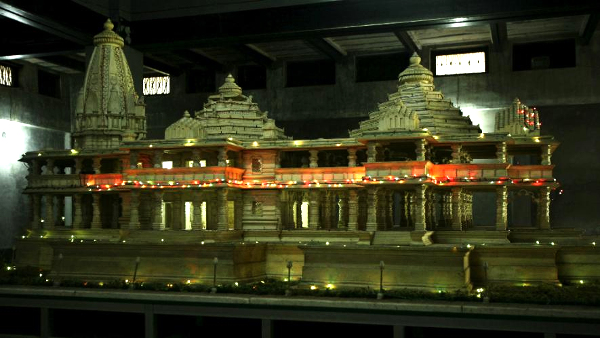The Supreme Court on Saturday cleared the way for the construction of a Ram temple at the disputed site at Ayodhya and ordered an alternative five-acre land for building a mosque, in a landmark ruling on the highly divisive case that dragged on for decades.
A five-judge bench of the apex court headed by Chief Justice of India Ranjan Gogoi unanimously ruled that the disputed 2.77 acres of land would go to the deity Ram Lalla and that a Centre-run trust will build a temple on it.
The land, on which the now-demolished Babri Masjid once stood, will remain with a Central government receiver until the Centre forms a trust within three months.
Ruling that the 1991 demolition of Babri Masjid was a wrong, the court said, “The Constitution must ensure that a wrong committed must be remedied. Justice would not prevail if the Court were to overlook the entitlement of the Muslims who have been deprived of the structure of the mosque through means which should not have been employed in a secular nation committed to the rule of law”.
To remedy the wrong, the court ordered that five acres of land – either at the adjoining 67-acre site acquired by the Centre, or at a prominent place in Ayodhya – for building a mosque.
The bench also ruled that the Hindu organisation Nirmohi Akhara would not be the shebait, but would instead get to be a member of the trust.
The judgement said it is not concerned with faith and belief, and instead treated the case as a title dispute over land between the three parties — the Sunni Muslim Waqf Board, the Nirmohi Akhara, and the deity Ram Lalla Virajman.
“The dispute is over immovable property. The court does not decide title on the basis of faith or belief but on the basis of evidence,” the 1045 page verdict said.
Reading out the verdict, CJI Gogoi said that an Archaeological Survey of India report showed the Babri Masjid was built over a temple, but did not specify whether the structure was demolished to build the mosque.
The court pointed out that the “possessory claim of the Hindus to the composite whole of the disputed property” stood on a better footing than the evidence from the Muslim side.
The Muslim side offered no evidence of exclusive possession of the inner courtyard – the area under the masjid dome believed to be the birthplace of Lord Ram – the judges said, while the Hindus clearly possessed and worshipped at the outer courtyard.
The faith of the Hindus that Lord Ram was born at the demolished structure is undisputed, the apex court said.
Source: ET
Image Courtesy: FirstPost
You may also like
-
Trade Connect E-platform For Exports Is Single Window, Fast, Accessible And Transformational: Shri Piyush Goyal
-
Five Successful Years of Pradhan Mantri Kisan Maandhan Yojana (PM-KMY)
-
Global Study by Leading Experts : Swachh Bharat Mission Drives Significant Reductions in Infant Mortality Rates in India
-
India Graphene Engineering and Innovation Centre (IGEIC) Under the Vision of Viksit Bharat@2047 Launched
-
Government Launches Vishvasya-Blockchain Technology Stack
